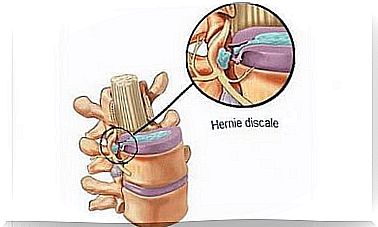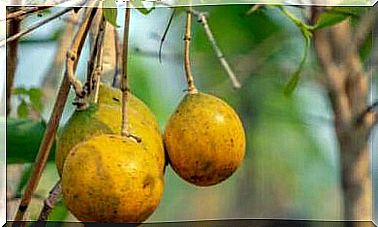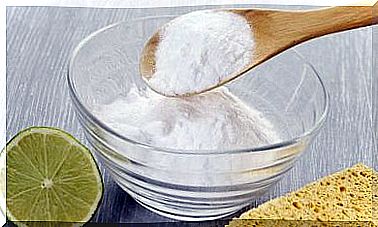The Most Effective Natural Laxatives Against Constipation
Thanks to its properties and its high pectin concentration, the apple helps us to regulate the functioning of our intestines, both in case of constipation and diarrhea. Discover today in this article the most effective natural laxatives against constipation.

Constipation is a mild disease characterized by the slowing of intestinal transit. In case of temporary constipation, it is not necessarily necessary to go to the doctor or go to the pharmacy. Indeed, certain foods naturally have laxative properties that can help us gently restart the proper functioning of intestinal transit. In this article, we introduce you to the most effective natural laxatives.
If you suffer from constipation, you definitely want to know how to find a natural and effective laxative. Today we explain in this article what are the best possible natural laxatives. First of all, remember that you must always consume foods that contain a lot of fiber, which regulate transit and intestinal flora, such as yogurt for example.
Natural laxatives are foods, or herbs, that help facilitate bowel movement. It is important to differentiate them from purgatives, because the latter are much more powerful, and their effects more drastic. They can create certain problems or even be the subject of numerous contraindications. For this reason, it is important not to overdo these anti-constipation foods so as not to experience inflammation of the intestines.
If these symptoms remain mild most of the time, however, avoid slipping into chronic constipation, characterized by infrequent bowel movements (less than three per week) or difficult for at least six months.
The different types of natural laxatives
Laxatives are substances that relax or stimulate bowel movements, helping to speed up intestinal transit. By taking into account the way the body works, it is possible to distinguish several types of natural laxatives:
Stimulants

These laxatives are also called purgatives or cathartics. They stimulate the musculature of the intestine because they have components that act on the nerve endings of the colon. Thus, they cause movements that promote transit. They also act on the walls of the intestine and increase the production of minerals and fluids, while decreasing the absorption of sodium and chlorine.
The downside of stimulant laxatives is that they take a long time to cause a reaction in the body. Once ingested, they can indeed work for at least 8 hours before producing a result. It is therefore advisable to consume them in the evening, so that they act during the night.
Mechanical laxatives
These are laxatives rich in soluble and insoluble fiber which increase the volume of stools. They retain water, hydrate the walls of the intestine and help peristaltic movements in a more natural way, while promoting evacuation.
Their action is lighter than that of stimulant laxatives. It is recommended to consume them first when the onset of constipation or intestinal disorders occurs. They thus normalize the functioning of the organism. In addition, it is advisable to accompany them with a high consumption of foods containing probiotics, such as yogurt.
Osmotic laxatives
These laxatives work by increasing the amount of water in the intestine, thereby softening the stool. This action is similar to that of mechanical laxatives. But osmotics contain many more minerals that force the intestine to remove fluids from the body.
Among the osmotic laxatives, the best known is prune. Their effect is powerful, but they require a large consumption of water or isotonic drinks to recover the amount of fluids lost.
How to choose the right natural laxative?
Among the lightest laxatives, that is, mechanical laxatives, you can choose the following:
Apple juice and olive oil

Apples contain pectin, a powerful natural laxative that will help you fight constipation quickly. Pectin helps reduce stool transit time, and acts as a probiotic to increase the number of good bacteria in the intestine. This prevents constipation by stimulating movement in the digestive tract and increasing the frequency of bowel movements.
Consuming olive oil is an effective way to relieve constipation. By acting as a natural lubricating laxative, olive oil allows for easier passage of stool through the rectum. In addition, it stimulates the small intestine to facilitate intestinal transit.
- Juice two apples (half a cup) and mix them with the same amount of olive oil. Drink the whole cup before going to bed.
Plums and honey
Plums are the queen of natural laxatives. However, it is better to consume prunes because they supply the body with good bacteria for our intestines. It also contains Vitamin A, dietary fiber, iron and antioxidants.
Honey contains mild laxative properties and can treat constipation in children and adults. In addition, it fights fermentation, by its action on the intestinal flora. Honey is therefore a useful food for the health of the intestine.
- Put six plums in a saucepan with a cup and a half of boiling water, cover, and let soak overnight. In the morning, filter then add a spoonful of honey, before drinking it all. Do not throw away the plums, and consume them throughout the day.
The aloe vera
The dried juice of aloe vera is a natural laxative which contains in particular derivatives of anthracene and aloin. However, it should be used for short periods of time, in case of occasional constipation, as it can become irritating to the bowel.
Be careful, this natural laxative is not recommended for pregnant women, or for those who are breastfeeding, nor for people who consume anticoagulants.
- Take a stalk of aloe vera, then cut it into pieces. Then put it to boil in a little water. Wait for the mixture to cool, then pour everything into a glass container with a tight-fitting lid. Add the pieces of aloe vera then close well, before putting the container in the refrigerator. You can take it twice a week at most.
Grape juice and flax seeds
You don’t necessarily think about it, but know that grapes help fight constipation. Thanks to its richness in fibers contained in its skin and in its seeds. Therefore, do not throw away the small seeds, even if they seem unpleasant to swallow.
Flax seeds are high in fiber, especially insoluble fiber, which increases mass in the intestines. This mass pushes on the intestinal walls, which causes contractions and promotes the unblocking of the intestines. These seeds also contain a soluble fiber called mucilage which binds with water to create a gel that prevents hardening of the stool.
- Make a juice with several grapes (until you get about a cup) and pour in a spoonful of powdered flax seeds. Drink it on an empty stomach, for no more than a week at a time.
Castor oil compress
The castor oil-based compress is a homemade laxative that is used externally. Wet a small towel, or gauze, in castor oil previously heated over low heat. Lie on your stomach, and press the compress on the lower back area. Cover with a towel to keep the compress hot as long as possible. Use this remedy once a day.
Warning: it is not recommended to consume castor oil to treat constipation . It is indeed a very powerful laxative which could harm your intestines.
Foods with laxative capacities
In addition to all the foods we have told you about in this article, there are other natural laxatives that are very effective for constipation.
Before presenting them to you, it is important to clarify the causes of this intestinal disorder. This digestive problem is one of the most frequent today, it is due to an unhealthy diet and poor lifestyle.
Lack of exercise, sedentarization, low water intake, and high intake of fats and refined flours can be the cause of constipation. It is necessary to have a healthier life to have more normal evacuations.
The secret of a good transit? A varied diet, which does not ignore any food. A rebalancing which involves the consumption of vegetables and fruits. On the fruit side, some are also strongly recommended in this context. In general, in the event of constipation, the consumption of fruits and green vegetables combined with a physical and sporting activity makes it possible to find a normal transit.
The following foods can help you fight constipation naturally:
Plantain
This herb, native to India, is very rich in fiber and perfect for regulating intestinal transit. It has the ability to absorb water, increase stool size, and stimulate digestion.
Apple
This delicious fruit, whether red or green, contains a substance called pectin, which has the property of promoting the functioning of the intestines, softening the stool, thanks to its fiber content, and promoting their evacuation. Eat an apple a day, in the morning or as a dessert after dinner, if possible raw, or boiled with prunes.
The banana
It is a fruit that provides the body with a large amount of fiber, in addition to potassium, which makes it a powerful laxative. A banana provides 12% of the amount of fiber our body needs every day. In addition, it has oligosaccharides, a substance that goes directly, without being digested, to the small intestine, and which promotes digestion and evacuation.
Onion
It is one of the plants that should not be missing in any of your dishes, because it has a delicious flavor, but also because it treats a large number of diseases, pathologies and disorders. It is a very effective natural laxative. In addition, consuming raw onion activates the secretion of gastric juices and promotes the health of the intestinal flora. Finally, it contains quinine, a component that stimulates the metabolism of the liver, stomach and pancreas.
To regain normal transit, opt for fruits containing fiber. Consider consuming dried fruits rich in mineral salts, prunes, dried apricots and figs, as well as nuts for your snack. If you have difficulty eating fresh and raw fruits, you can cook up recipes based on these fruits or consume them in the form of juice, in the morning before breakfast, to purify your body and eliminate toxins.
To put an end to constipation, it is also necessary to hydrate and drink 1.5 liters of water so that the fibers can swell and have an effect on the intestinal transit.
It is very important that while increasing the intake of fiber, we do the same with water, because otherwise we can get the opposite effect and make the situation worse.









